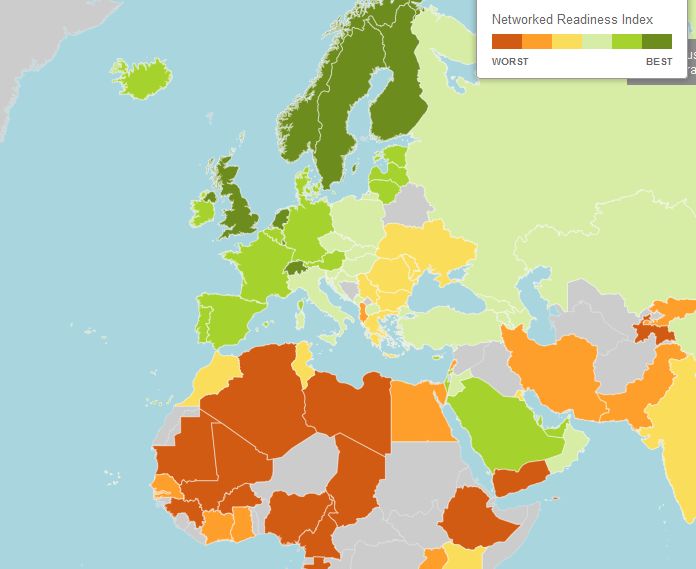Analytics, EU – Baltic States, Internet, Rating, Technology
International Internet Magazine. Baltic States news & analytics
Saturday, 27.04.2024, 03:24
Estonia keeps leadership among Baltics in Global Information Technology Report 2015
 Print version
Print version
However, Latvia keeps moving closer to the Nordic countries, which still are the global IT leaders, with Finland in 2nd place, Norway – 5th, Denmark – 15th, and Iceland – 19th.
Latvia also keeps moving away from the rest of the Eastern European countries, with whom the country has been sharing equivalent growth indicators (Slovenia – 37th, the Czech Republic – 43rd, Hungary – 53rd, Slovakia – 59th).
Singapore claimed the first place, while Chad was last.
Among the top IT countries also are Finland, the Netherlands, Switzerland, the United States, the United Kingdom, Luxembourg, and Japan.

As a general-purpose technology, the impact of ICTs extends well beyond productivity gains. ICTs are vectors of economic and social transformation. By improving access to services, enhancing connectivity, creating business and employment opportunities, and changing the ways people communicate, interact, and engage among themselves and with their governments, ICTs can transform our world.
Yet only widespread and systematic usage of ICTs by all stakeholders-individuals, businesses, and government – can trigger such transformation. The Networked Readiness Index (NRI) reveals the almost perfect correlation between a country’s level of ICT uptake and the economic and social impacts ICTs have on its economy and society.
ICTs are neither as ubiquitous nor spreading as fast as many believe. This explains in part the persistence of the digital divide across and within countries. Indeed, a stubbornly high correlation between income level and performance in the NRI exists.
There are as many mobile subscriptions as human beings on the planet. But half of the world’s population do not have mobile phones and 450 million people still live out of reach of a mobile signal. In developing countries, a huge divide exists between well-connected urban centers and off-the-grid rural areas. Finally, most mobile phones are of an older generation. The ICT revolution will not be carried over voice and SMS but will require universal and fast Internet. Yet some 90% of population in low-income countries and over 60% globally have never gone online.
The Global Information Technology Report looks at IT readiness, development, availability, and impressibility, among other aspects.








 «The Baltic Course» Is Sold and Stays in Business!
«The Baltic Course» Is Sold and Stays in Business!

